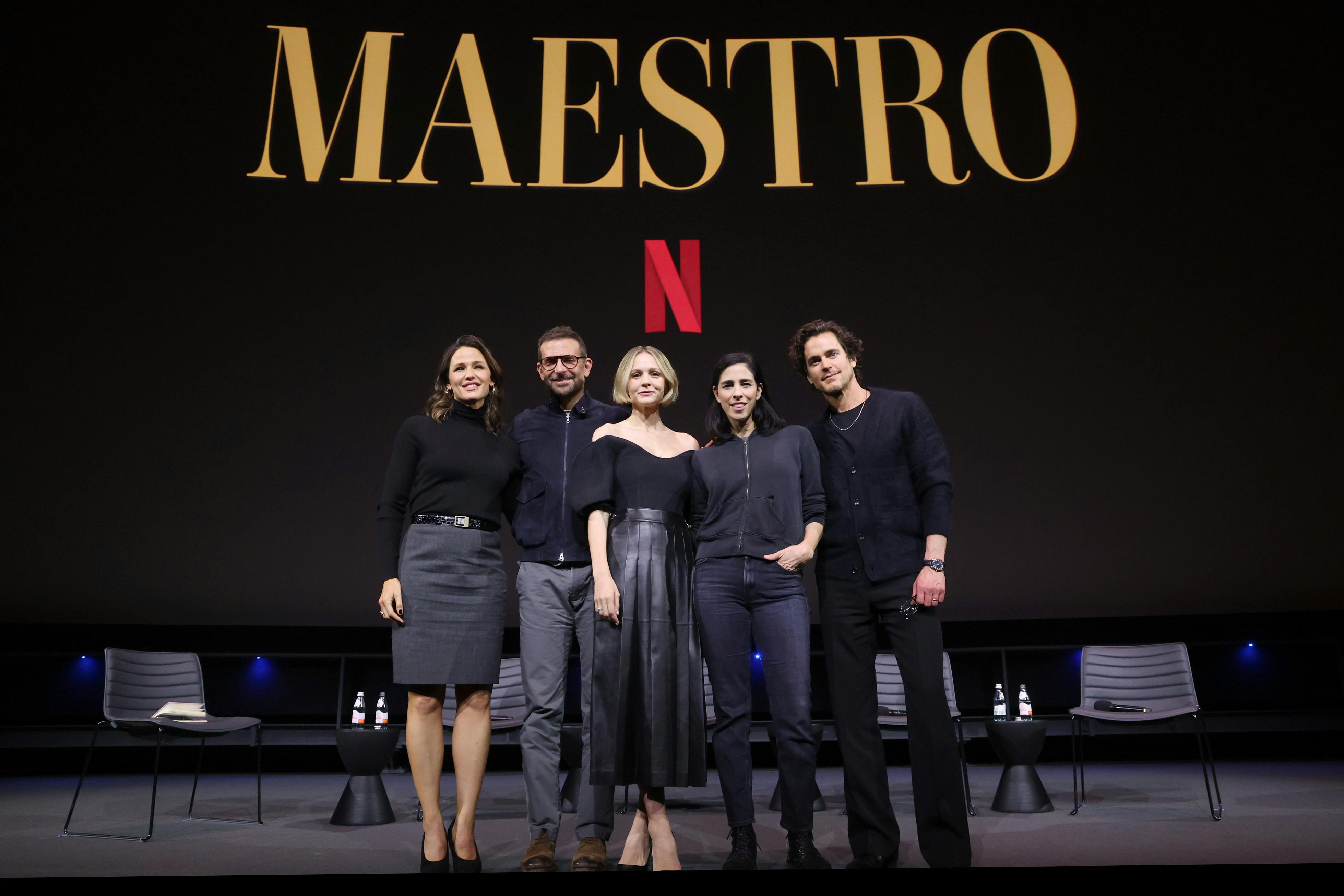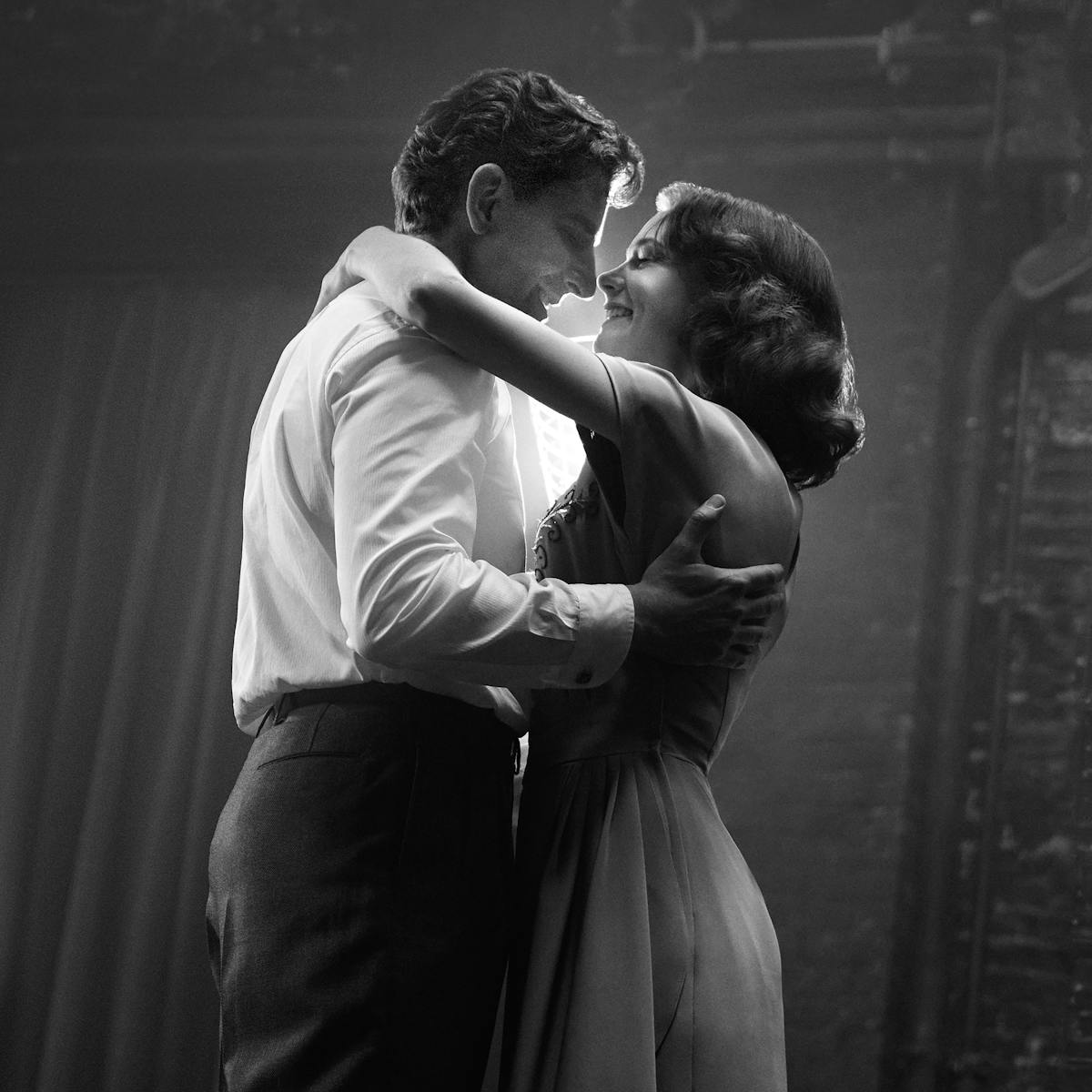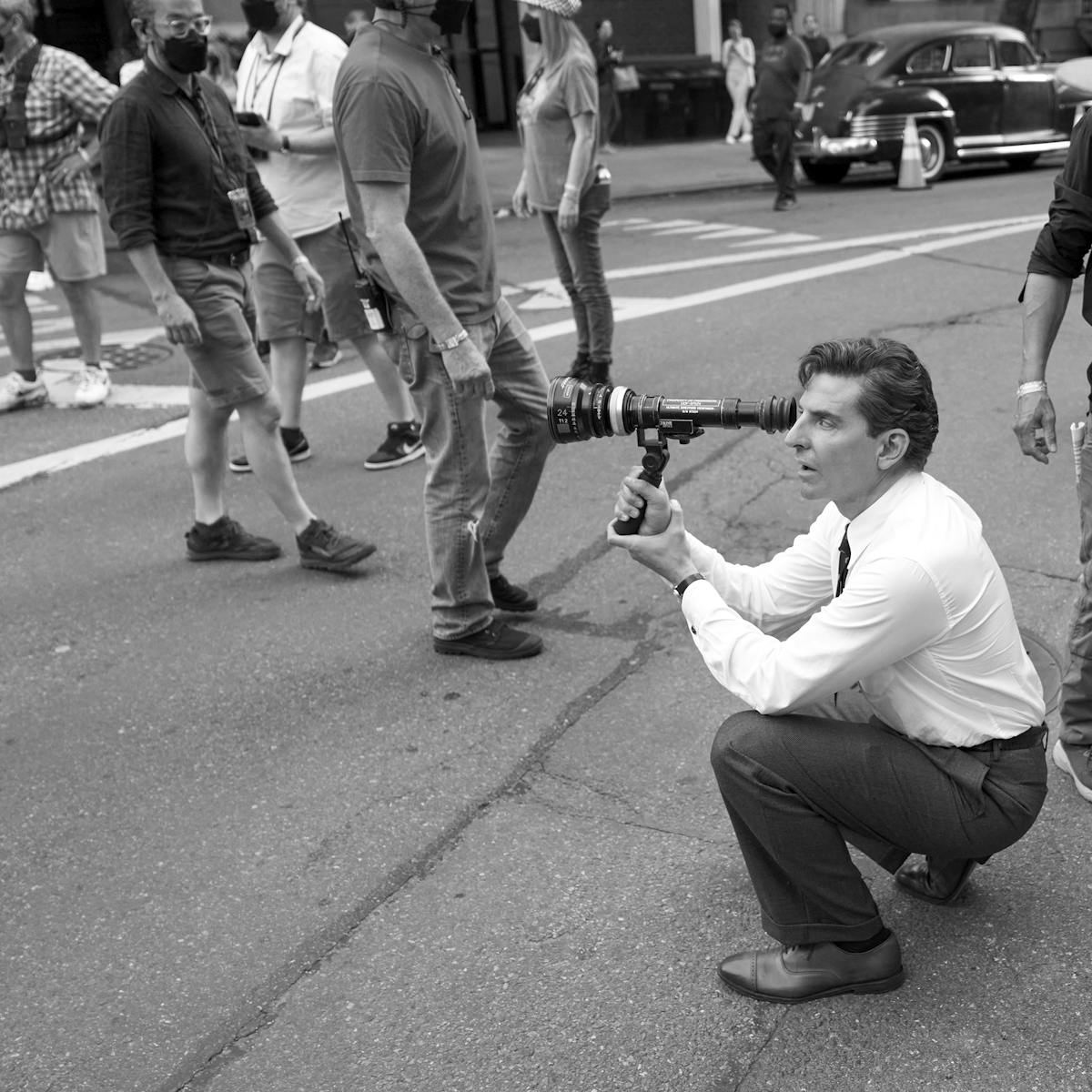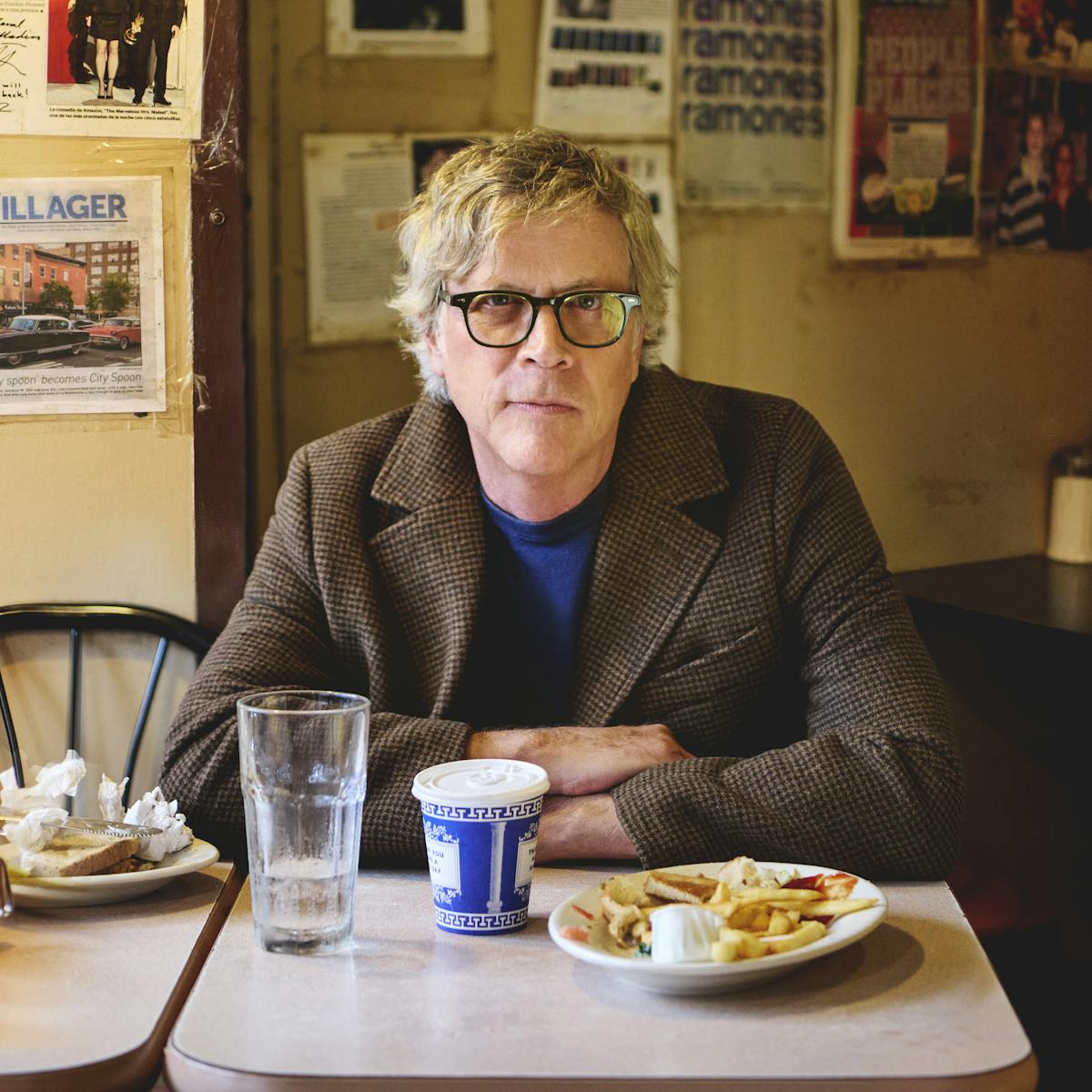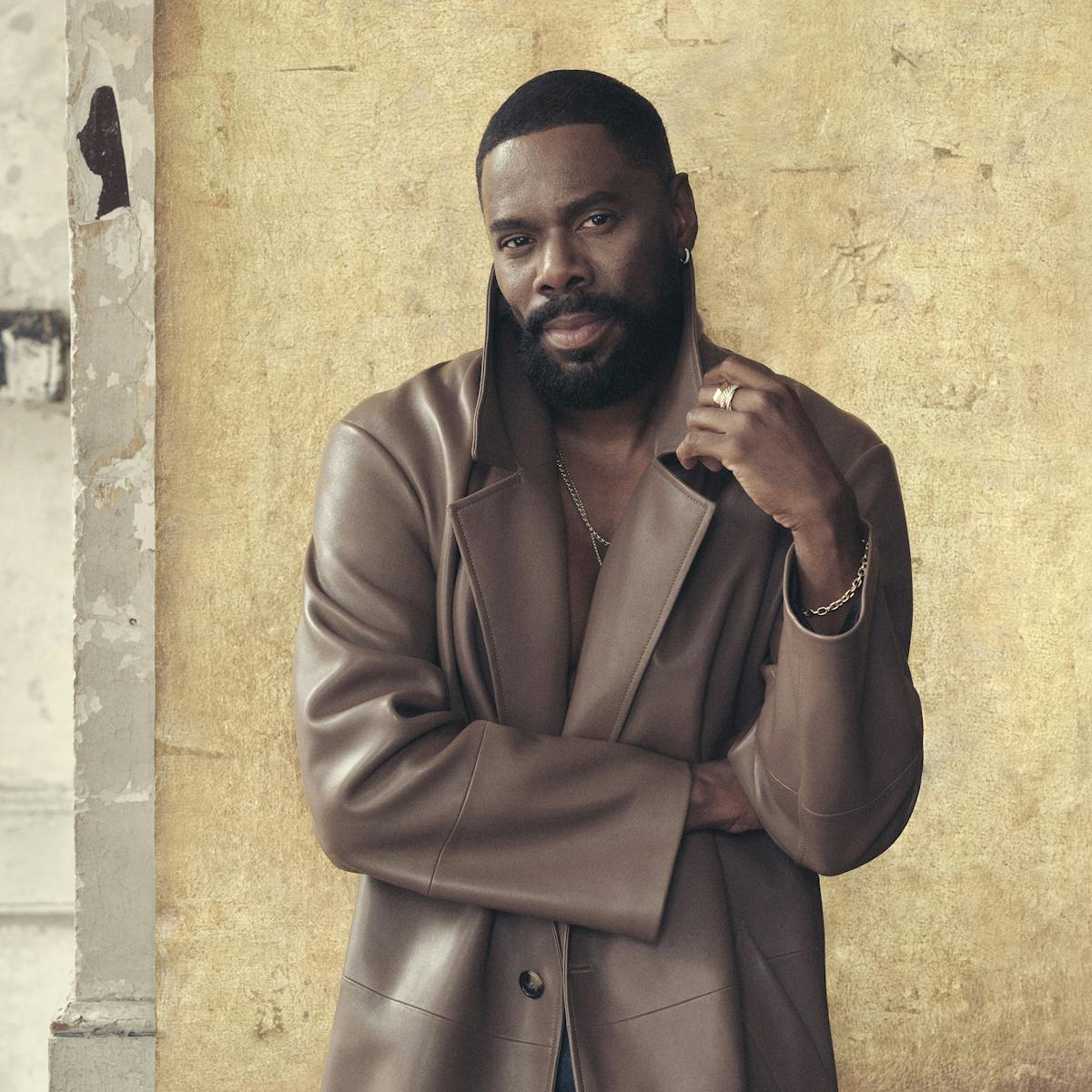Bradley Cooper, Carey Mulligan, Matt Bomer, and Sarah Silverman discuss their life-changing experiences filming the love story of Leonard Bernstein and Felicia Montealegre.
In Bradley Cooper’s Maestro, the co-writer, director, and star not only transformed himself into the great twentieth-century conductor and composer Leonard Bernstein, but also created a profound experience for all those who worked with him on the film. Says Cooper’s co-star, Carey Mulligan: “It was the best experience I’ve ever had being directed, best experience I’ve ever had acting, and I fell in love with acting more and fell in love with film more. It set an impossibly high bar, and I may never work again. It’s no hyperbole. It really was that to me.”
Cooper would arrive on set around 2 a.m. each day to allow makeup and prosthetics designer Kazu Hiro enough time to change him into Leonard before a long day of directing and acting began. The auteur’s commitment to his craft, and to the project he’d begun developing more than six years prior to shooting, imbued every aspect of the film, inspiring his fellow actors and the drama’s craftspeople.
The film follows Cooper’s Leonard throughout his courtship and marriage with the artist, actor, and activist Felicia Montealgre, played by Carey Mulligan. Felicia and Leonard are introduced to one another at a party by Leonard’s sister Shirley, portrayed by Sarah Silverman, beginning a whirlwind romance and lifelong partnership. However, Leonard also shares a meaningful bond with musician and producer David Oppenheim, played by Matt Bomer, and his relationships with men outside his marriage complicate his connection with his family, especially his supportive wife.
In a conversation with Cooper’s former Alias co-star and friend Jennifer Garner, members of the Maestro cast — Cooper, Mulligan, Bomer, and Silverman — gathered to discuss the making of their momentous film.
The conversation has been edited for clarity.
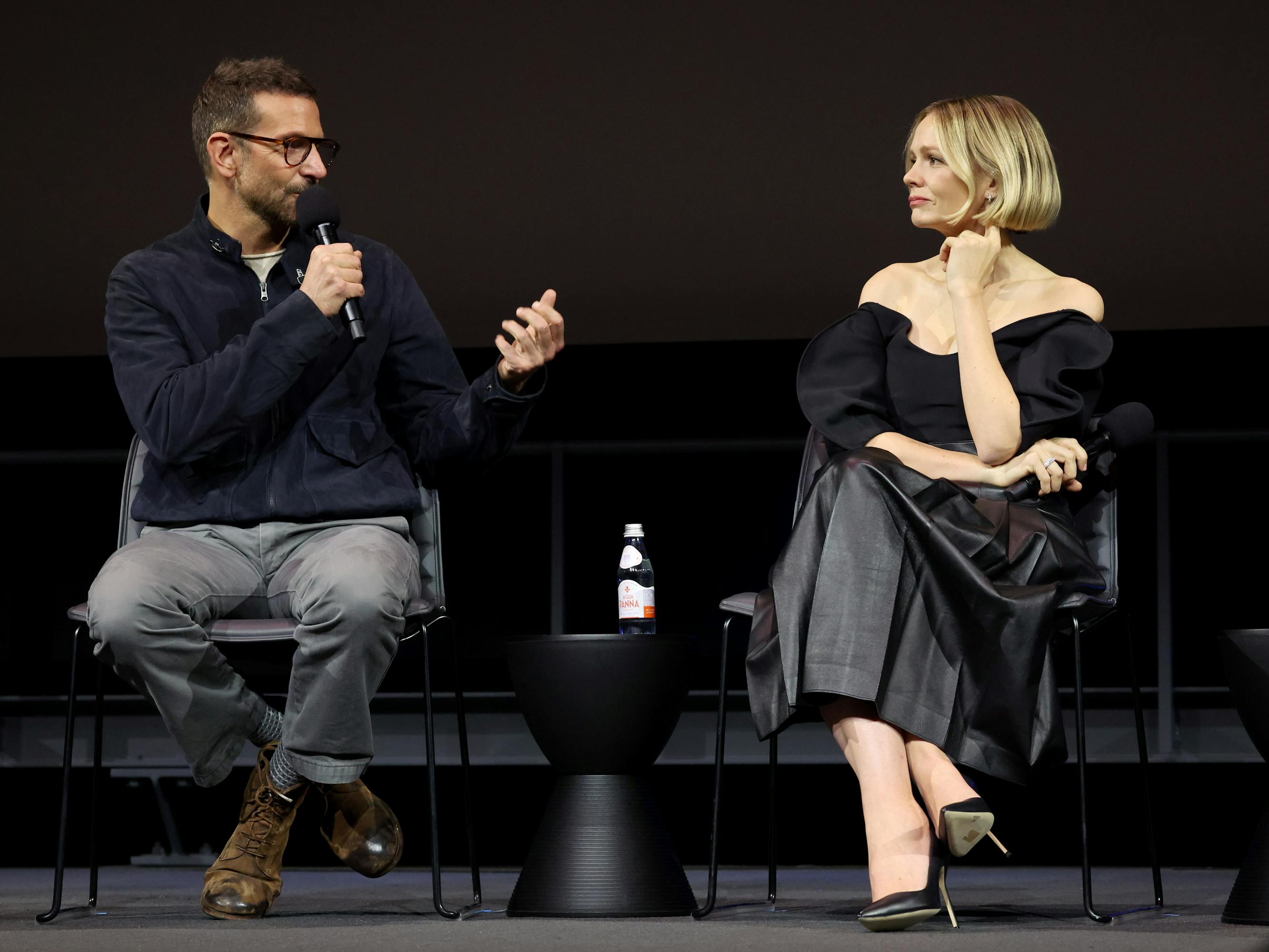
Bradley Cooper and Carey Mulligan
Jennifer Garner: Bradley, anyone who knows and loves you watched you prep for this movie, watched you live it in deeper and deeper layers, watched you write the script for years with Josh [Singer]. At the same time, you were consuming music and conductors of music. From what I saw, you weren’t working with a conducting coach early on. You just were absorbing it. And then when the time came, you could do it. Is that right?
Bradley Cooper: It was all happening at the same time — investigating what the movie could be, figuring out what it is, then starting to write it. And at the same time, knowing that there were these gigantic mountains I was going to have to eventually climb . . . Luckily, I had six years to prep to climb them. I spent a whole [season], from first rehearsal all the way to the final performance, with [music director] Gustavo Dudamel and the L.A. Philharmonic at the Hollywood Bowl. Then Yannick Séguin, who is the music director of the Philadelphia Orchestra and also the music director of the Met Opera in New York, was also a major component and was there on set when we had to do those scenes. And then he also made videos and he helped keep time and all of that.
Garner: When you’re working with Bradley and you’re in the scene with him, is there a tell? If he likes it, can you see it in his eyes? Do you see the director in the actor?
Matt Bomer: I wish every actor had the great benefit of working with Bradley. Truly, it’s such a present, alive way that he works with his actors. It’s so generous. He finds a way to make you so in the moment, which is what we always try to do. But he’s there for you, and to have a director like that who wants you to walk the tightrope and stay with him, but will catch you if you fall, that’s really all you can ask for. I didn’t notice any tells, but it was a thrilling experience.
Sarah Silverman: I didn’t go, “Oh. He’ll use this take,” but the last thing you said — “Do you see the director and the actor?” — I mean, oh my God, every cell in his body is thinking about the movie, this scene, this frame, every detail of it all the time, and he was so excited every moment of every day. He was Lenny, but when he wasn’t shooting, he was just really excited Bradley, and it was really cool.
Carey Mulligan: I don’t think I could, because he was Lenny. He got to work about four or five hours before anyone else got there — to do the makeup that would get him to be Lenny. So by the time we got to set, he was by the camera, smoking, and he was Lenny, and there were two days where he was Bradley. Like Sarah said, it was cellular; it was from head to toe.

Matt Bomer
Garner: Matt, can you tell me how the letters between Lenny and David Oppenheim informed your performance, what they brought out in you?
Bomer: So, on the Library of Congress webpage, there’s a lifetime’s worth of personal letters between the two of them, Lenny’s in this beautiful, composed handwriting, and David’s in this chicken scratch. But it was such a beautiful insight into the shorthand they had together, and their shared ambitions, dreams, and loves, and it really goes through their entire life. David was also somebody who spent his life cultivating great artists. He was the architect of NYU Tisch School. And so you can imagine when he met a supernova, once-in-a-generation artist like Lenny, the kind of love and affection he’d have for somebody like that. Lenny also wrote a beautiful sonata for him that I listened to quite a bit, that was really mournful and full of yearning and longing as well.
Garner: You had one of those incredibly tricky and vital roles where you are only seen a handful of times, but you are right next to Felicia the entire movie. We have to see you as the counterpoint. There’s a moment, Bradley, where you are at Tanglewood, and you want to introduce your new girlfriend to the real love of your life, and it’s just this moment that really encapsulates so much of the relationships in this movie. It’s devotion, calm, family against animal longing or passion.
Bomer: That’s what I was speaking to about working with Bradley that’s so exciting. The scene when I meet Felicia, that was the last take we did. And he basically improvised all that off camera for the first time, and that’s what’s in the movie. Then we had this big walk and talk, and he just decided to take that risk and do it without any words, and you can just trust him and jump off the cliff with him, and he is there to catch you, which is amazing.
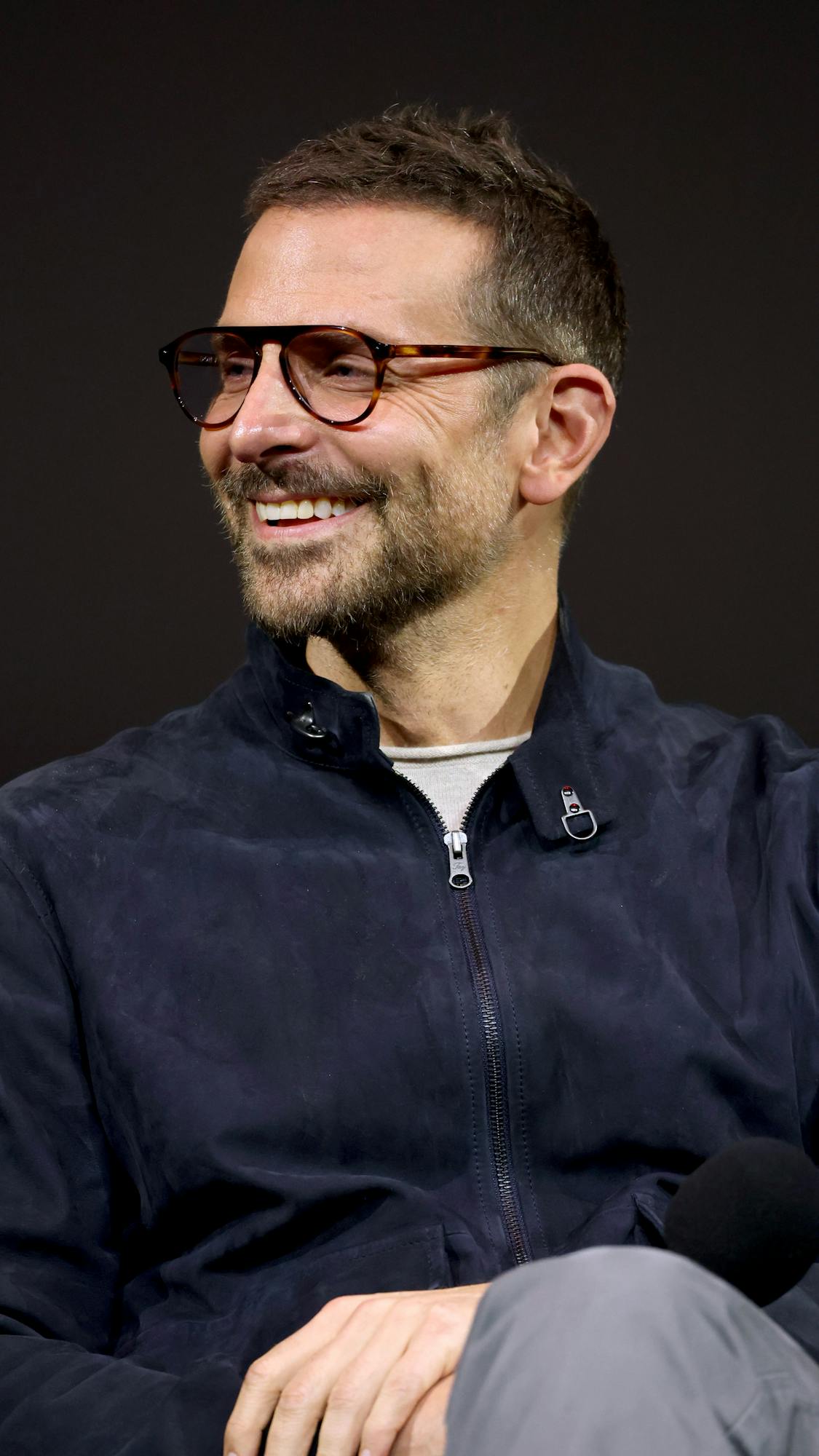
Bradley Cooper
Garner: Can we [discuss] the walk and not talk? That goodbye, the heartbreak of that. I cried.
Cooper: Okay, so there, again, is a testament to this actor. It was a scene that Josh Singer and I had written where they’re catching up on each other’s lives. And we did it a couple of times, and I was like, “I don’t know. This shit’s just getting in the way.” I just thought, “Fuck it, let’s not say a thing. Let’s just take this walk down Central Park.” And that was it. The minute that happened, the whole scene exploded, and then they just stop, and that was it.
Garner: Carey and Sarah, one thing that I just loved that I think is so rare to see in a movie is the relationship between the two women [you play], and to see it evolve and grow. Can you talk about just how you built it and how you conveyed the time in the relationship so that by the end, I could see you’d worn these shoes for a long time together?
Silverman: I feel like when Shirley first brings Felicia to meet her brother at the party, it’s like I’m showing Felicia, “Look what I have, and look what I brought.” Shirley needed to be in the center of it — I think, inside, that’s all she has. Her whole life is molded around her brother, and that’s how it is with him. He’s a force. So, in that way, I think it was a little frenemy-ish. And then, as time went on, we became, I think, war pals. We understood each other. There’s a deep love.
Mulligan: Yeah, it was just a deeply complicated relationship all the way because Lenny was the center of Shirley’s life. And I think, if you ask the family, it was maybe always a very complicated relationship. There was a really lovely coming together that Bradley and Josh wrote into that Palm Court scene [over brunch at the Plaza Hotel] that they have got to the point where they know each other that well.
Cooper: This relationship was an example of Lenny’s effect on people and how, eventually, they would band together in order to survive. For example, in that scene in the Dakota apartment, Shirley just says, “Shall I fetch him?” When we know that Lenny just took Tommy outside, and Shirley clearly knew it. That’s you [Shirley] protecting her [Felicia].
Silverman: I think Shirley is surviving. My therapist says you can’t thrive if you’re surviving. And I feel like Shirley acts like she’s thriving, but she’s surviving. You can smell that a little bit.
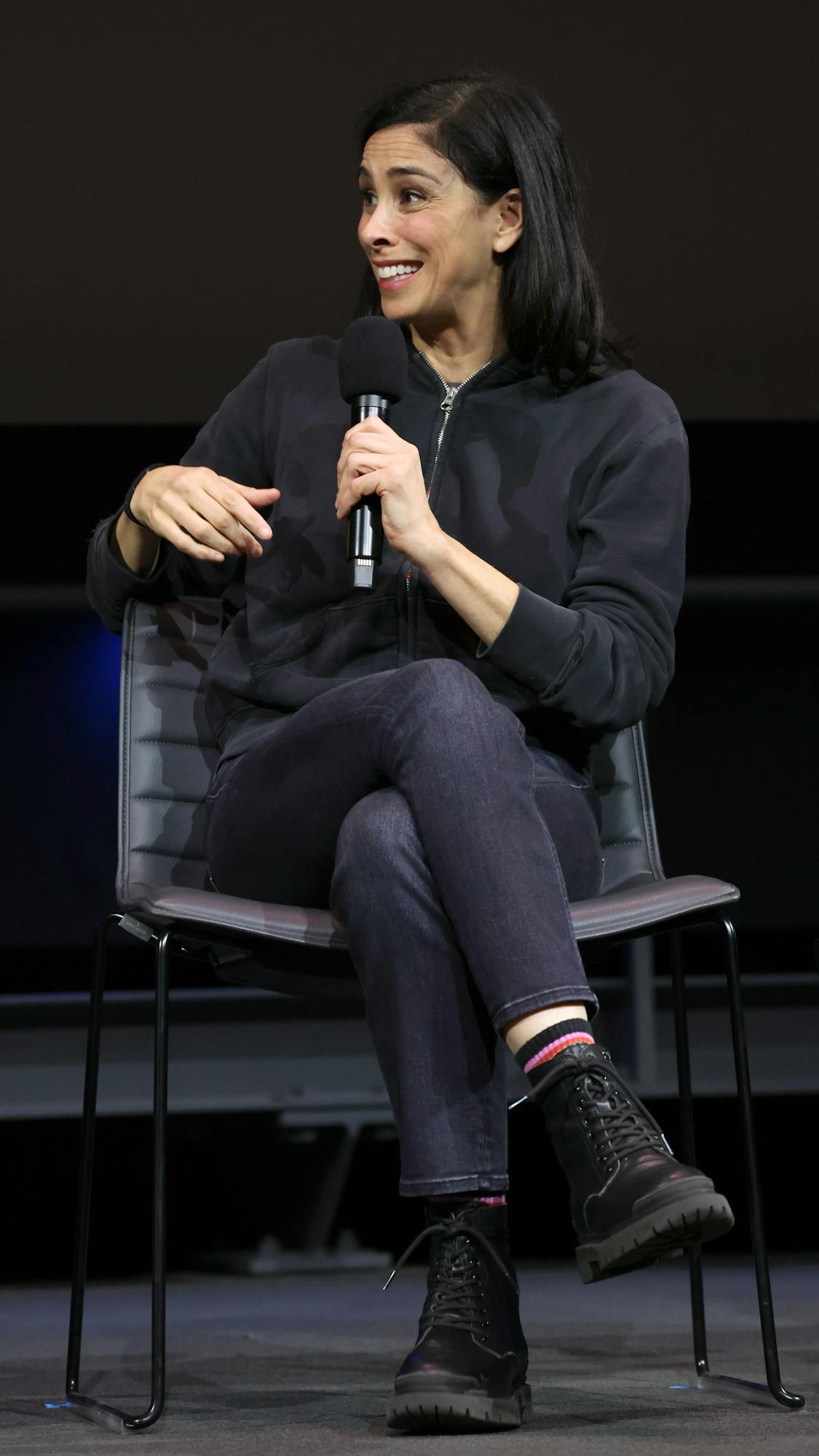
Sarah Silverman
Garner: Carey, one recurring theme for Felicia is standing next to the stage and just pouring your energy into Lenny. It feels like you guys are tethered to each other in those moments. I don’t know if that’s what it felt like to you playing, but as an audience, that’s what it felt like to me. What were those moments for you?
Mulligan: I think that’s a big part of her life experience, just watching him. Being two artists in a relationship where one is an artist and a great actress, and actually, an actress who was more successful than him when they first met, to being with someone who’s the greatest of his generation. To give over your life to the dedication of someone that you really believe is a once-in-a-lifetime, once-in-a-generation talent . . . I think people felt that watching him. And she would feel that more than anyone, as his wife and the person that he chose to spend his life with. And it’s funny because I think I felt that watching Lenny, but also Bradley. I had seen the work that he had put in. I signed on to work on this four years before. He’d already been working for two years. So I saw so much of the passion that he had for it and the dedication that he had for it.
But I think that when it comes to the betrayal or the sense that she lost him, it’s not anything to do with sex. She was clear from the beginning. She said it in a letter to him, “I know exactly who you are, but I love you, and I want to make a life with you.” I think she was always accepting that there were things that they didn’t need to talk about that would make him feel a whole person. The betrayal is that, in the moment when he’s most nervous and he’s got this new piece of work that means so much to him, when he needs assurance, he goes to Tommy. He doesn’t go to her. I think if his hand had reached that way, their story would’ve taken a different path. But it was that. It was the betrayal of, “I’m not your center, I’m not your grounding force anymore. It’s somebody else.” And that’s, I think, ultimately, what broke her heart.
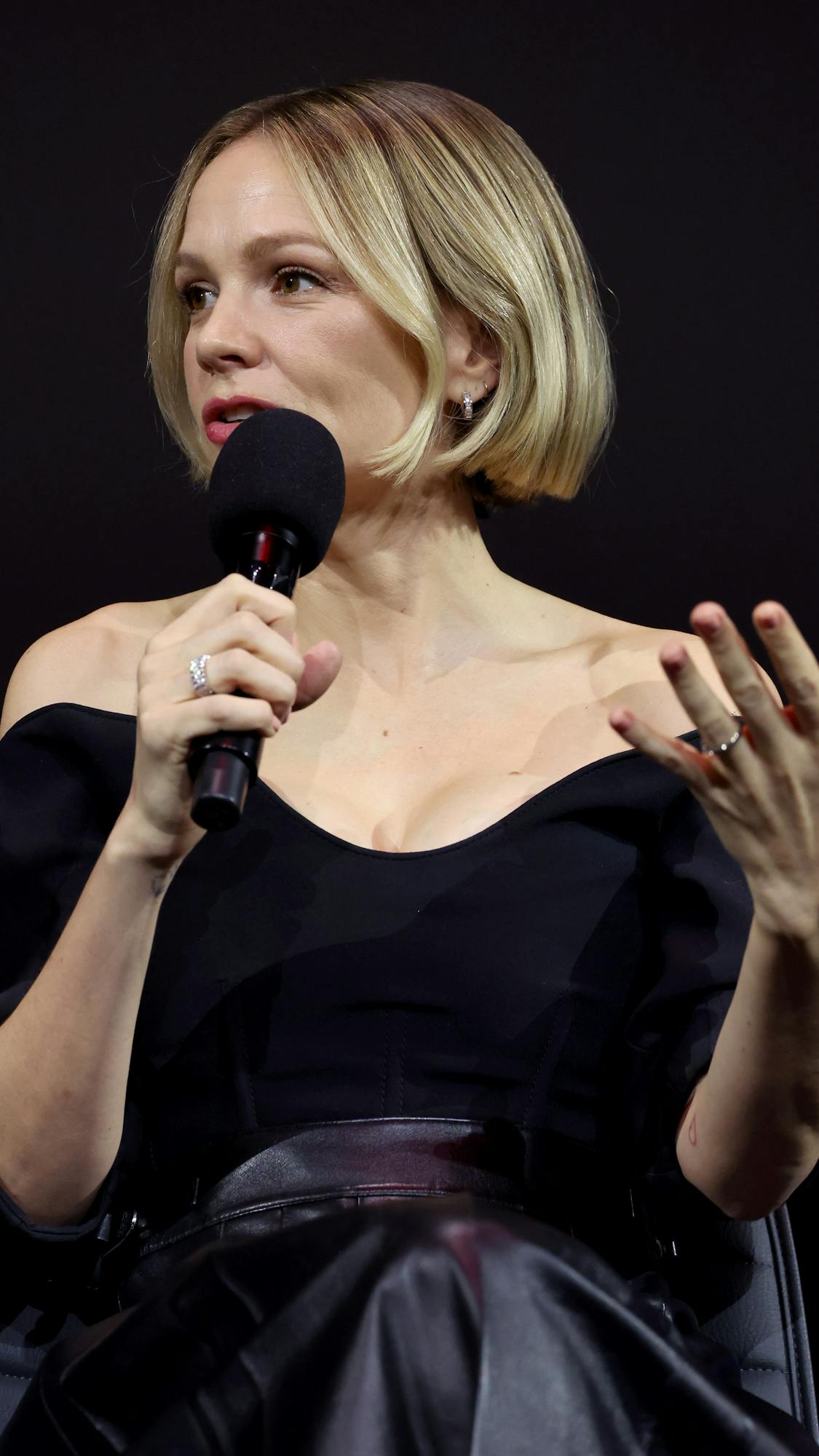
Carey Mulligan
Garner: Can you tell me how playing this role changed you? Because sometimes roles come along like that, and this is clearly one of those for all of you. Can we start with you, Matt?
Bomer: I think handwriting out all those letters to Lenny, it’s just something so pure and true in the artistry of both those men and their connection. And, I have to say, watching Bradley, honestly, is probably what changed me the most. Being inspired by the fact that he was conducting this film the same way Lenny would conduct an orchestra. It was one of the most beautiful and inspiring things I’ve ever seen.
Silverman: I think that’s exactly right. His whole heart is this movie and the joy of making it. Nothing else matters.
Mulligan: It changed everything. Completely changed me as an actor. I’ve always done almost all in, and Bradley asked me to go all in. And it almost felt like there was no choice because of what he was putting himself through, and the honor of being asked to do it, honestly. I thought, “Right, well then I’ll go all in and I’ll try and not be afraid,” because he was making it so fearlessly. I couldn’t believe he asked me to do it, and I still can’t quite believe it, but it’s that. It was everything.
Cooper: I’ve thought about it a lot since because it has changed my life in every way. I think more than anything, there’s something about him. First of all, it has bent time for me. I can’t believe I didn’t actually meet Lenny. He died in 1990. I don’t understand it. I feel like I know him. Isn’t that crazy? But that’s how it feels. More than that, the thing that he gave me was the knowledge that if all of these people can come together with joy and are dedicated to a common goal to tell the story, there’s just absolutely nothing you can’t accomplish. And that was to be on set every day and feeling that energy. It just felt effortless. I was not fatigued. I was actually filled with more energy. It was a self-generating battery, because they were so willing to give over to this story because they thought it was worth telling.
I just want to heal. I want to be healed. Movies healed me. I hope to be a part of something that can heal others, and that’s it.
